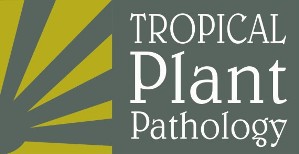Sporulation of Alternaria solani can be scarce and is often reduced when the fungus is cultivated in vitro. A series of experiments were conducted to assess the effects of moisture, mycelial wounding, light quality and photoperiod, and culture media on conidial production. A procedure to induce sporulation based on mycelial wounding and dehydration was adapted and validated. Best results were obtained when fungal colonies were grown in V8 medium at 25ºC in the dark with agitation for seven days; the mycelium mass was ground, poured into potato dextrose agar (pH 6.5) in plates, and incubated at 25 ± 2ºC under near ultraviolet light and 12 h-photoperiod. The procedure was validated with 30 isolates of A. solani from different hosts, sampling locations, ages, and storage conditions. Conidial production, germination, and infectivity were quantified. Seventy-five percent of the isolates sporulated and the lowest germination rate was 68%. Inoculations of conidial suspension of all isolates resulted in lesions on tomato and potato plants. The effect of subculturing on A. solani sporulation was also assessed. After six subcultures, every seven days, there was no reduction in sporulation of colonies that were induced with the protocol.
early blight; biphasic technique; subculture; infection frequency







